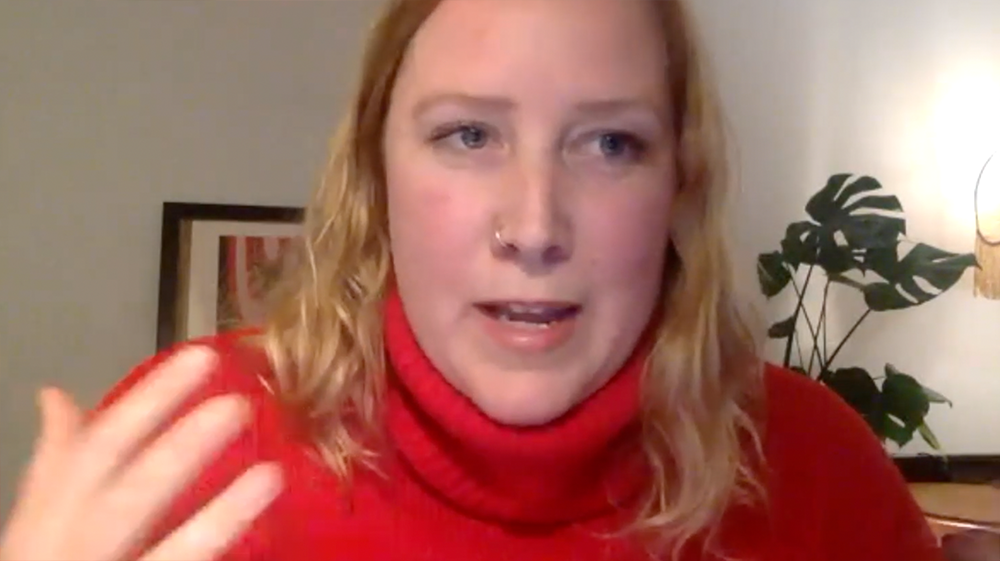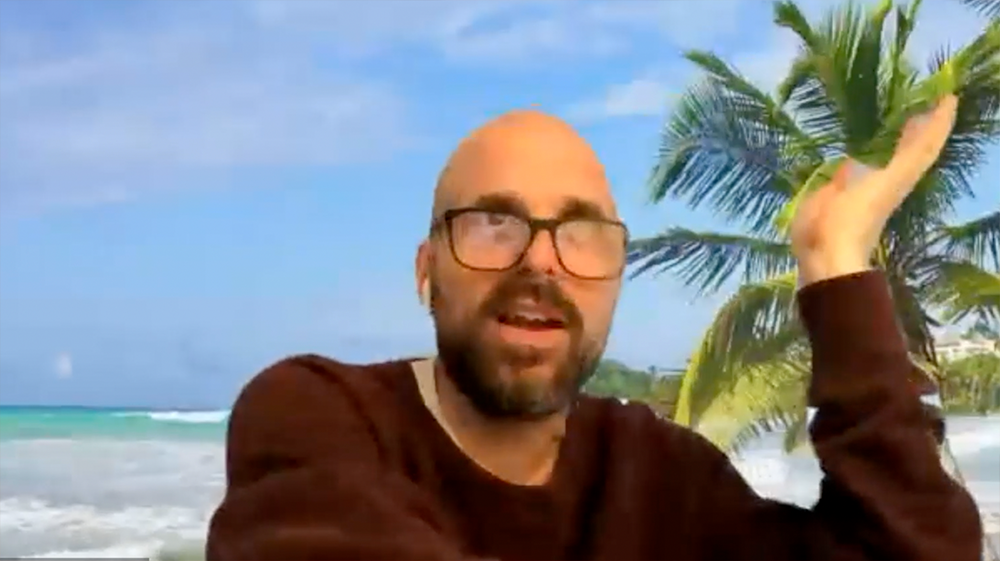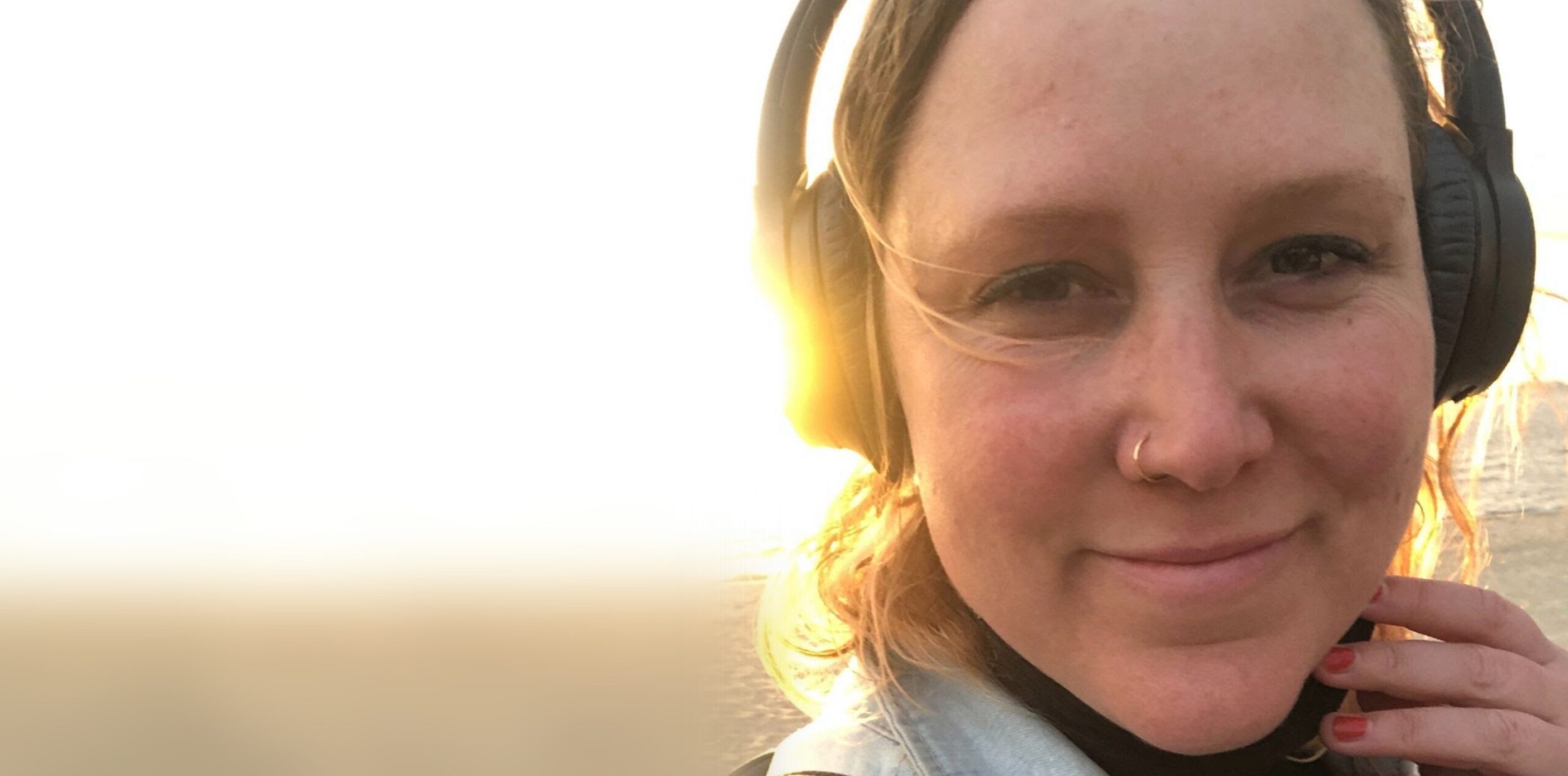Communities Are Key: Big Careers Start Local
#HowWeListen Live: In Conversation with Sarah Hamilton took place on Tuesday, June 7th, 2022, live from Australia. Sarah Hamilton, Regional Manager for Australia & New Zealand at Ditto Music.
Sarah joined us from Melbourne, Australia
The following transcript has been edited for length and clarity.
In Part II (below) Sarah Hamilton talks about some best steps that artists can take to self realize their goals, “Stay Independent”. Sometimes it can be hard to promote yourself, but no one else will. Sarah explains how she gets Australian artists played in markets around the world and how she goes about pitching to playlists.
Miss Part I? Click here to go back.
The following transcript has been edited for length and clarity.
Marc Brown: I have a question – a friend of mine makes music, and I told her that you need to figure out what and who you sound like, and she said that it’s tough to look at yourself. So my question is, do you have any tips to help in analysing themselves in an artistic way? Do you ask friends, or how do you figure it out?
Sarah Hamilton: Totally. Many people find it hard to talk about themselves. It’s really good to have one sentence that can describe yourself and your sound. Some artists will put together a full PDF with a vision board and influencers and things like that. So, if you’re a visual person, that can be really helpful.
But yeah, basically just have a bio and an elevator pitch – that’s all you need.
Marc: Yeah. With domestic stuff, you probably have an idea of stations you’ll be played on etc., but when you’re thinking of these other territories, how can artists get their music out there? What strategies can artists use to try to get into other territories while still building attention at home?
Sarah: I definitely don’t understand all of the global markets, so it’s important to have people in my role at Ditto around the world, in each market. I’ll send them the music, press release, and bio and ask if they think it can work in their territory. Then we pass that transparency back to the artist. We rely on the local knowledge of the people in my role around the world.
If there’s a particular reason as to why you can pitch to a particular territory, always make sure that you tell the person you’re working with. But you shouldn’t spend loads of time trying to get into a playlist in Russia, for example, if you’ve never been to Russia. You’ve got to think about if there’s a reason.
Marc: One needs to research!
Sarah: Yeah! And there’s also the data side of things, so if someone says to me, “I’ve got 100,000 listeners in Peru,” we’ll pitch in Peru.
Marc: Do you have any examples of artists in Australia that do well internationally but might not do well at home?
Sarah Brown: The first act that comes to mind is an act called AViVA. They’ve done over 2 billion streams on Spotify and YouTube. They’ve played a lot of festivals, and they’re supporting My Chemical Romance – it’s massive. Most people in Australia haven’t heard of them, or if they have, it’s because they’re in that particular niche. They used YouTube a lot to really tap into their fan base, and they’ve had success on some of the YouTube channels like Mr Suicide Sheep and that kind of thing.
Their following from YouTube moved over onto Spotify, and now AViVA has actually just written a book, and she got a publishing deal. They haven’t really been played on commercial radio stations here in Australia. It’s all been online for them.
Marc: Wow! Thanks. Ok, now let’s get into specifics. I think we should talk about playlisting and the nuts and bolts of it. Can you explain the specific job you do as far as pitching to playlists?
Sarah: Yeah, because Ditto has the two different streams, many artists go out through subscription, and I don’t pitch them to the DSPs. They do the pitching themselves.
Marc: I have a question because I love timelines. How long in advance should artists pitch their music?
Sarah: About a month is best, but I would say to every artist, get all of your assets together before setting your release date.
Marc: I see! Let’s talk about being a signed artist on Ditto – how does that work?
Sarah: If someone is signed to Ditto Plus, we pitch to all of the DSPs in Australia, and then I’ll also be pitching to the Ditto people in my position around the world so that they can pitch to their local DSP editors. We try to get our artists played on Spotify, Apple Music, Amazon, and YouTube Music playlists. We also try to get them played in retail spaces and some people playlist places like that.
Basically, when we pitch something, we need to gather a lot more information, so we ask for the bios and the press shots, song moods etc. So we get all the information and then format it in a way that the DSPs like to receive.
Marc: So, playlist pitching for you is you talking to people who run the different playlists and then they have editors above them?
Sarah: Correct, so the editors are the ones who are curating the playlists. Spotify Australia might have 5 – 10 editors and then some label representatives that I also talk to. Amazon might just have a couple of staff in Australia, for example. It depends on how big the office is as to who’s making those decisions. Generally, people will select what songs people want to be on a playlist, and then there are also editorial playlists that are changed based on what you have been listening to previously. It’s a combination of the machine and the human editors. There are also algorithmic playlists which are curated just for you.
It’s basically the same as radio plugging, I guess. We pitch a few weeks in advance and then I’ll also re-pitch and ask them to take another look at the song, usually providing some data about how a song is doing.
Marc: The re-pitch – that’s interesting. Do you find that that works?
Sarah: It can! It works if there’s a good reason, like some activity surrounding a song. It doesn’t usually work if you just want them to listen to a song again.
Marc: We have a question about Ditto. How many artists are signed to Ditto in your territory?
Sarah: well, I’m not sure exactly, but I would say it would be getting up to 1,000 or so that we’ve signed to Ditto plus.
As for how many artists I work with, we usually release 5-10 tracks a week from artists signed to Ditto plus in Australia, and then I will also be pitching some of the international stuff that I think might work here. I also try to ensure I don’t have artists of competing genres in the same week.
There are 4 of us in Australia, and Ditto has a few bigger offices – one of the biggest ones is in Manila.
Marc: Why a big office in Manila?
Sarah: We have a lot of staff there working on support, content, and the subscription side of things. Our support staff are based there. We also have a big office in Liverpool, then smaller offices, with 2-5 people, around the rest of the world.
But in the Philippines, for example, we have worked on quite a few projects there, and we’ve pitched some Australian artists in South East Asia. Like Yeo – an amazing R&B artist that has had some success across Asia.
In Australia, we focus a lot on Spotify, but in places like South Korea, for example, Spotify is tiny, and they have other massive platforms, China is the same, and they do not care about Spotify.
Marc: Yeah, that is that personal bias where you think if you use Spotify, everyone else does, but it’s totally wrong. There are tons of other platforms that people use.
We have two questions. Do you work with any reggae artists? And question number two is about Africa and Ghana.
Sarah: First, we do have some reggae artists, but to be honest, a lot of the reggae playlists aren’t curated in Australia, so I don’t personally know the editors of those. We work with a label out of Papua New Guinea and the Solomon Islands, and they have a lot of reggae. It’s a bit tricky here, but I’m always happy to take a listen and ask someone in the U.S or somewhere else to see where those playlists are curated. Hopefully, it can get more popular here. I think people’s tastes are diversifying.
As for the second question, I work closely with our African team, which is fun. We work with an artist called Mike Akox, who was in Sydney for a time but now he’s in Ghana. The way radio works over there is so different, so you need someone over there with that local knowledge. We work with quite a few artists from Africa and Ghana, and we sometimes pitch them into the UK because afrobeat is huge there.
Marc: Makes sense! Oh, we have a question about your personal music taste.
Sarah: I love this question – it changes a lot. I love neo-soul like Hiatus Kaiyote and Allysha Joy, those kinds of things. I’ve also gotten pretty into hip hop lately as well. I’ll also listen to a lot of indie, singer-songwriter-type music.
I heard some statistics that suggested that once people reach their mid-30s, they only listen to old music, but I kind of break that norm because while I do love older stuff, I also love new music. I think it’s so exciting.
Marc: I have one final question which relates to that. How do you think your music taste has been affected by how you listen to music? Particularly after the transition from analogue to digital.
Sarah: Great question! I have to stop myself from putting on my marketing hat and seeing how I think something would do and instead just let it wash over me. That’s easier to do when I see something live, or I’ll put music on really loudly when I’m in the car. We’re all here because we love music, but I don’t want to let it become mathematical to me.


Marc: So for you, it’s a lot about when you listen that will dictate how you will appreciate it?
Sarah: Absolutely. I’m someone who gets goosebumps when I love music, and that’s an instant yes to me. Do you get goosebumps when you hear the music you love?
Marc: Hmmm, not really. I feel it in my heart more. There are certain things where it’s actually painful how much I like it.
Sarah: Yeah! And it hits you in this specific way where you’re like, I didn’t even know I was feeling that, and now all these new feelings are coming up.
Marc: There are so many different ways to experience music! I now get the music more because I don’t work as closely with music as I used to. What you’re saying makes sense for people who work in and around music – it can be dangerous. To be able to step back and enjoy stuff without judgment is really important, I think.
Sarah: I totally agree.
Marc: Well, Sarah, thanks for the chat. It was super insightful!
Sarah: Thanks, Marc. Thanks, everyone.




